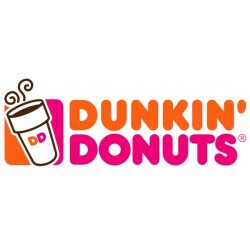Top Class Actions’s website and social media posts use affiliate links. If you make a purchase using such links, we may receive a commission, but it will not result in any additional charges to you. Please review our Affiliate Link Disclosure for more information.

On July 12, Dunkin’ Donuts’s legal team filed the motion with the Illinois District Court overseeing the case.
According to allegations in the Dunkin’ Donuts class action, plaintiff Michael Bartolotta alleged that Dunkin’ Donuts was adding sales tax to their bulk coffee beans at the higher rate used for food consumed on the premises, rather than the lower rate reserved for food to be consumed later.
Many states charge different tax rates for food depending on if it is sold as groceries or to be immediately eaten. Bartolotta’s lawsuit holds that Dunkin’ Donuts charged customers the higher rate when they should have charged the lower.
Dunkin’ Donuts made several arguments in their motion to have the case dismissed. First, they argue that the corporate office of Dunkin’ Donuts has no role in setting the tax rate or prices at franchise Dunkin’ Donuts locations.
In fact, the brief claims that the franchise contracts explicitly state that each franchise is individually responsible for figuring out the tax rate and collecting it properly.
Additionally, Dunkin Donuts argues that a legal precedent should get the case dismissed. The text of the brief to dismiss the Dunkin’ Donuts class action argues that a Superior Court in New Jersey found that the corporate offices of Dunkin’ Donuts was not at fault over the same issue.
“The Superior Court of New Jersey recently dismissed a virtually identical class action complaint brought against one of Dunkin’s affiliates (Dunkin’ Brands, Inc., or ‘Dunkin’ Corporate’) on the grounds that Dunkin’ Corporate had no involvement in the sales transactions at issue or in the assessment of sales tax, all of which it recognized were conducted solely by franchisees,” the motion to dismiss states.
In the initial Dunkin’ Donuts lawsuit, Bartolotta also named an individual Illinois Dunkin’ Donuts franchise as a defendant but argued that at this point in the case, there is no distinction between the Dunkin’ Donuts corporate office and the individual franchises—a point disputed in the recent motion to dismiss.
The original complaint states that Illinois law requires food for immediate consumption to be taxed at a rate of 6.25 percent, while food sold for consumption off the premises to be sold with a tax rate of one percent, meaning that the coffee beans should have been taxed at a lower rate.
However, the individual franchise contends that they were in compliance with Illinois tax laws.
If the case moves forwards, anyone who purchased bulk coffee beans at Dunkin’ Donuts in Illinois who paid the higher tax rate could be potential Class Members.
The plaintiff is represented by Joseph J Siprut, Todd Lawrence McLawhorn, Ismael Tariq Salam and Richard Steven Wilson of Siprut PC.
The Dunkin’ Donuts Coffee Tax Class Action Lawsuit is Bartolotta, et al. v. Dunkin’ Brands Group Inc., et al., Case No. 1:16-cv-04137, in the U.S. District Court for the Northern District of Illinois.
ATTORNEY ADVERTISING
Top Class Actions is a Proud Member of the American Bar Association
LEGAL INFORMATION IS NOT LEGAL ADVICE
Top Class Actions Legal Statement
©2008 – 2024 Top Class Actions® LLC
Various Trademarks held by their respective owners
This website is not intended for viewing or usage by European Union citizens.














